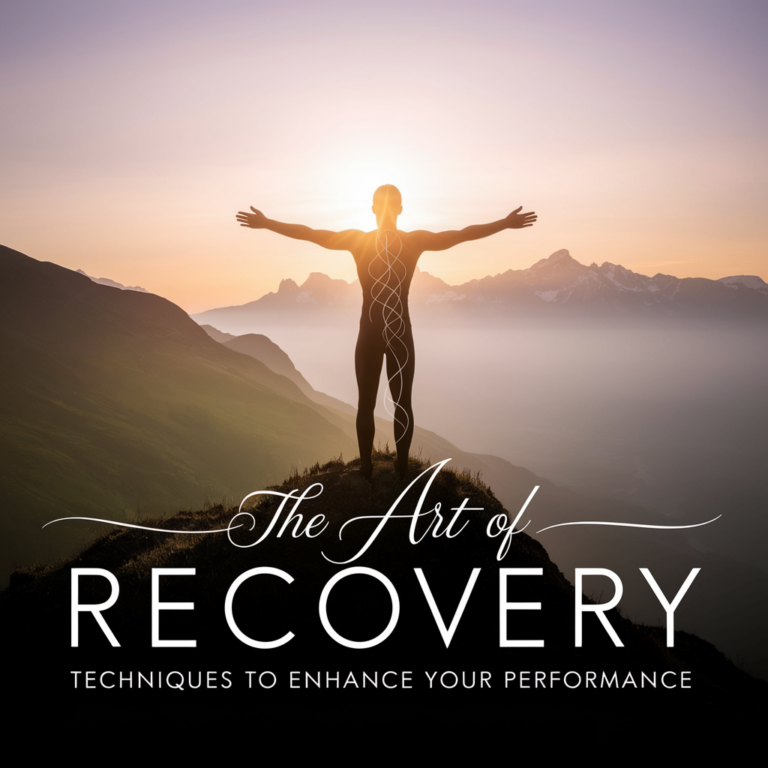Exploring the Benefits of Strength Training for All Ages
When we think about strength training, the image that often comes to mind is a young athlete hoisting weights in a gym, veins bulging, sweat glistening. However, the reality is far broader—and far more inclusive. Strength training isn’t just for the young or the elite; it’s a powerful tool that can benefit individuals of all ages. It’s time we pull back the curtain and explore the myriad ways resistance training can enhance our lives, no matter how many candles are on our birthday cake.
The Foundation of Strength Training
Before diving into the age-specific benefits, let’s clarify what we mean by strength training. At its core, strength training involves exercises that improve muscle strength and endurance. This can include weightlifting, resistance band exercises, bodyweight workouts—basically, anything that helps your muscles push against resistance. (And no, it doesn’t have to involve bulky equipment or a gym membership, though those can help if that’s your jam!)
Why Strength Training Matters
According to numerous studies, engaging in strength training regularly can lead to a plethora of health benefits. For instance, it can:
- Increase muscle mass
- Enhance metabolic rate
- Improve bone density
- Boost mental health
- Reduce the risk of chronic diseases
It’s fascinating to consider how these benefits can transcend age barriers. Whether you’re a sprightly teenager or a wise octogenarian, strength training can be a game-changer.
The Youthful Years: Strength Training for Children and Teens
Ah, the youthful years! When energy seems boundless, and the world feels like a playground. But here’s a little secret: strength training can actually enhance that youthful vigor. A significant number of experts recommend that children and teenagers partake in strength training, provided they engage in proper techniques and supervision.
In fact, strength training for youth can:
- Improve athletic performance
- Enhance coordination and balance
- Boost self-esteem
- Encourage lifelong fitness habits
You know, I remember my high school coach, a burly guy with a penchant for motivational speeches, often said, “Strong body, strong mind.” He wasn’t wrong! A study in the Journal of Strength and Conditioning Research found that adolescents who participated in resistance training experienced improved self-esteem and body image. It’s remarkable how lifting weights can lift spirits!
The Teenage Transformation
As teenagers transition into adulthood, peer pressure and body image issues can rear their ugly heads. Strength training can be a constructive outlet. It encourages a focus on personal goals rather than comparisons with others. Plus, learning the fundamentals of strength training fosters an understanding of fitness that can last a lifetime.
Adulthood: Carving Out a Stronger You
As we leap into our adult years, life often becomes a juggling act—careers, relationships, and responsibilities can leave little room for self-care. Yet, the importance of strength training cannot be overstated. Adults can reap numerous benefits, including:
- Weight management
- Enhanced cardiovascular health
- Injury prevention
- Improved mood and mental clarity
Interestingly, a survey conducted by the American College of Sports Medicine indicates that many adults underestimate their physical capabilities. I once encountered a colleague who, after years of avoiding the gym, decided to give strength training a shot. “I can’t lift,” she said, but after a few months of consistent training, she was not only lifting weights but also lifting her spirits. Talk about a transformation!
Strength Training and Mental Health
It’s not just physical strength that benefits from resistance training; mental health gets a boost too. Engaging in regular strength training has been linked to reduced symptoms of anxiety and depression. The endorphins released during exercise can function as a natural mood lifter. So, if you’re feeling down, consider hitting the weights instead of the couch.
Embracing Middle Age: Strength Training in Your 40s and 50s
As we stride into our 40s and 50s, our bodies start to change—metabolism slows, muscles can weaken, and the risk of injury increases. But don’t fret! Enter strength training, your trusty sidekick in this new phase of life. At this stage, the benefits of strength training include:
- Combating age-related muscle loss
- Maintaining bone density
- Improving balance and stability
- Enhancing overall quality of life
A friend of mine, who recently turned 50, took up strength training after realizing the toll that sedentary office life was having on his body. He jokingly refers to his weights as his “youngster’s kit.” It’s a hilarious way to own the fact that age is just a number. Who says you can’t feel youthful at 50?
Building a Routine
For those in their middle years, building a strength training routine can be as simple as incorporating exercises into your daily life. Whether it’s lifting groceries or doing push-ups during TV commercials, every bit counts! The key is consistency.
Golden Years: Strength Training for Seniors
Now, let’s talk about our esteemed seniors. The golden years shouldn’t mean a plateau in fitness. On the contrary! Strength training can be incredibly beneficial for older adults. Here’s why:
- Enhancing mobility and independence
- Reducing the risk of falls
- Managing chronic conditions
- Improving mental sharpness
Remarkably, a study by the National Institute on Aging found that older adults who engage in regular strength training improve their physical function significantly. I once met a sprightly 75-year-old who, after taking up strength training, proudly told me that he can now lift his great-grandkids with ease. I mean, who wouldn’t want that kind of superpower?
Social Benefits
Let’s not forget the social aspect of strength training for seniors. Group classes can provide camaraderie and motivation. It’s a wonderful way to connect with peers and share in the journey of fitness. After all, who says lifting weights has to be a lonely affair?
Addressing Common Misconceptions
As we explore the benefits of strength training across the ages, it’s essential to address some common misconceptions that may hold people back from joining the ranks of the strong and mighty.
Myth 1: Strength Training is Only for Young People
This myth couldn’t be further from the truth. As we’ve discussed, strength training is beneficial for everyone, from kids to seniors. The key is tailoring the program to fit individual needs.
Myth 2: You Need to Lift Heavy Weights
Many believe that to gain strength, one must lift heavy weights. The truth is, bodyweight exercises and moderate resistance can be just as effective, especially for beginners or those returning to fitness after a long break.
Myth 3: It’s Dangerous for Older Adults
While it’s true that older adults should be cautious and possibly consult a physician before starting a new fitness routine, strength training can actually help prevent injuries by improving balance and coordination.
Getting Started: Tips for All Ages
So how can you dive into strength training at any age? Here are some tips to get you started:
- Consult a Professional: If you’re new to strength training, consider working with a certified personal trainer to ensure proper form and technique.
- Start Slow: Begin with lighter weights or bodyweight exercises to build a solid foundation. Remember, it’s about progress, not perfection.
- Set Realistic Goals: Whether it’s lifting a certain weight or completing a number of repetitions, having goals can keep you motivated.
- Mix It Up: Variety is the spice of life! Incorporate different exercises to keep things fresh and engaging.
- Stay Consistent: Aim for at least two to three sessions per week. Consistency is what leads to results.
And remember, it’s never too late to start! I once read about a 90-year-old who began strength training and became the oldest person to complete a marathon. Talk about inspiration!
The Bottom Line
Strength training offers a treasure trove of benefits for individuals of all ages. From building muscle and enhancing mental health to promoting longevity and independence, the advantages are clear. So whether you’re a teenager looking to boost performance, an adult juggling the demands of life, or a senior hoping to maintain mobility, strength training is your ally.
As we navigate this journey called life, let’s not underestimate the power of a good workout. After all, as the saying goes, “Strong is the new sexy!”—and strength training is its secret sauce.
So grab those weights, find a buddy, and start your strength training adventure today! Who knows? You might just surprise yourself (and your great-grandkids) with what you can achieve.









